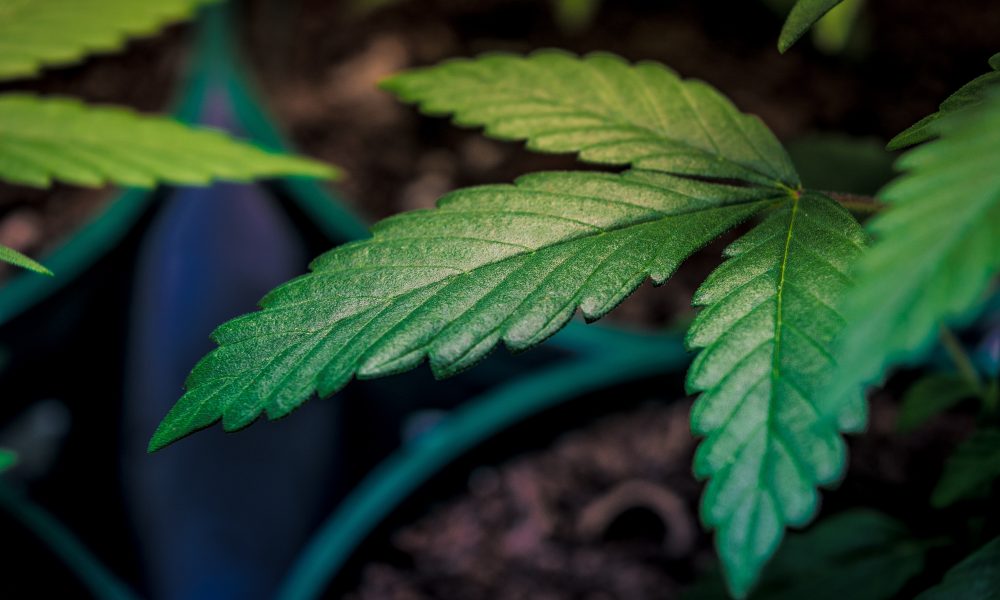The House sponsor of legislation in Virginia that aimed to protect the parental rights of lawful cannabis consumers is criticizing Gov. Glenn Youngkin’s decision last week to veto the bill.
If enacted, HB 833 would have prevented the state from using marijuana alone as evidence of child abuse or neglect and, further, established that drug testing in child custody and visitation matters “shall exclude testing for any substance permitted for lawful use by an adult” under the state’s alcohol, cannabis and drug laws.
Youngkin vetoed the bill on Friday, writing in a message that “the proposed legislation, aiming to address a non-existent problem, has potential consequences that may expose children to harm.”
Del. Rae Cousins (D), the bill’s sponsor, said in a statement on Monday that the governor “is turning his back on the needs of our children and neglecting their well-being by encouraging the courts to move forward with unnecessary family separations.”
“We have seen how this is playing out in our courts; with Black and Brown families receiving harsher mandates from our judges for legal and responsible substance use,” the lawmaker said. “Family separation has devastating effects both on our communities and on the well-being of children, and by vetoing this legislation, Governor Youngkin is telling our courts that they can continue to unnecessarily tear children away from their parents.”
On its path to the governor’s desk, the legislation won unanimous or near-unanimous approval in votes on the Senate floor. The House was more divided, with Democrats generally in favor, though the proposal garnered some Republican votes, as well.
“I am deeply disappointed in Governor Youngkin’s decision to veto this bipartisan, commonsense bill that simply helps families stay together,” Cousins said.
The bill now returns to the legislature, where two thirds of both houses will have to approve it in order to override Youngkin’s veto. A companion Senate version of the measure, SB 115, also passed the legislature this session but has not yet been transmitted to the governor’s desk.
The proposal says a person’s “lawful possession or consumption” of state-legal substances would “not serve as a basis to restrict custody or visitation unless other facts establish that such possession or consumption is not in the best interest of the child.” An enactment clause would have directed the state Board of Social Services to amend its regulations, guidance documents and other materials to comply with the provisions of the bill.
Cousins, in the statement from her office, noted that courts “would still have full ability to assess what is in the best interests of the child, including the risk of physical or mental harm.”
Advocates have said they’re disappointed with Youngkin’s veto decision but pledged to continue pushing for the policy change.
“Disappointed doesn’t describe how it feels for the veto to come down after two years of pushing this proposal,” Chelsea Higgs Wise, executive director of the group Marijuana Justice, told Marijuana Moment last week, adding that organizers “will be back next year and every year until we get it right.”
JM Pedini, NORML’s development director and executive director for Virginia NORML, pushed back against Youngkin’s assertion that the bill seeks to solve a “non-existent problem.”
“Our office has received numerous calls and emails from parents who have lost custody and or visitation of their children due solely to their lawful use of medical cannabis,” Pedini told Marijuana Moment. “This bill would have made clear to the courts that lawful and responsible cannabis use is not sufficient reason to deny custody or visitation. This bill is necessary and was introduced to address actual harm being done to Virginia parents and children.”
The legislation is among a number of marijuana-related measures that will land on Youngkin’s desk this session. Others include a proposal to legalize and regulate retail cannabis sales to adults, resentence people serving time for past cannabis offenses and protect public-sector workers from employment discrimination based on lawful medical marijuana use.
As a result of legislative procedures, the governor has more time to act on the other proposals. But last week a sponsor of the retail sales legislation said the bill could go “up in smoke” after an unrelated deal with the governor soured.
The governor’s office has repeatedly said Youngkin wasn’t on board with the sales proposal, however. In a recent statement to Marijuana Moment, his press secretary pointed to Youngkin’s comments earlier this year in which “he said he doesn’t have a lot of interest in pressing forward with marijuana legalization.”
Use, possession and limited cultivation of cannabis by adults is already legal in Virginia, the result of a Democrat-led proposal approved by lawmakers in 2021. But there’s nowhere for adults to legally buy the drug. Illicit stores have thus sprung up to meet consumer demand, with some estimates valuing the unregulated market at roughly $3 billion.
Nearly 9 In 10 Americans Think Using Psilocybin For Therapy Or Well-Being Is ‘Morally Positive,’ Study Finds
Read the full article here

